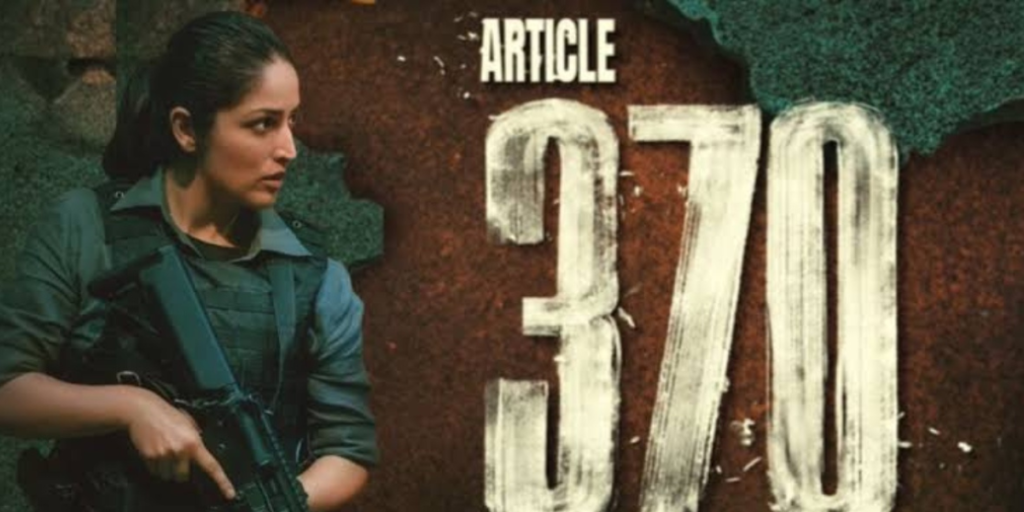In the landscape of Indian cinema, where politics often intertwines with storytelling, Aditya Suhas Jambhale’s “Article 370” emerges as a significant contender, particularly as it navigates the complexities of the government’s Kashmir policy. Released in the midst of an election year, the film doesn’t shy away from its persuasive stance, offering audiences a sarkari explainer that delves into the events leading to the abrogation of the contentious constitutional provision on August 5, 2019.
Table of Contents
Contextualizing Recent History
The film serves as a timely reminder of recent historical events that remain fresh in the public memory. Its primary objective seems to be elucidating the factors that culminated in the end of the special status of Jammu & Kashmir, setting the stage as the ruling party approaches the polls. However, amidst the urgency to present the abrogation as a masterstroke, the long-term implications of such a decision are somewhat glossed over.
A Cinematic Presentation of Article 370

Director Aditya Suhas Jambhale orchestrates the narrative akin to a sophisticated PowerPoint presentation, complete with a compelling background score. Much like the acclaimed “Uri” (2019), which dramatized the surgical strike against Pakistan, “Article 370” is strategically timed for maximum impact. Aditya Dhar, the co-producer and co-writer, along with his proficient actor wife Yami Gautam, who leads the cast as intelligence officer Zooni Haksar, craftily weave a tale that positions itself within the ‘us vs them’ narrative.
Political Undertones and Narrative Choices
The film’s narrative trajectory is heavily influenced by the political narrative set by the ruling dispensation. While it critiques Jawaharlal Nehru’s alliance with Sheikh Abdullah, it conveniently sidesteps any critical examination of the Bharatiya Janata Party’s coalition government with the Jammu & Kashmir People’s Democratic Party. Such selective storytelling underscores the film’s allegiance to a particular ideological stance.
Nuance Amidst Rhetoric
Unlike its jingoistic predecessor, “Uri,” “Article 370” opts for a more nuanced approach. It deftly explores the nuances of back-channel diplomacy and the complexities of negotiating with separatists and double agents. The film sheds light on the intricacies of terrorism and the conflict economy, exposing the moral ambiguities inherent in the separatist movement and local political leadership.
Character Portrayals and Performances
The ensemble cast delivers commendable performances, with Yami Gautam and Priyamani shining in their roles as strong, determined women navigating the tumultuous political landscape. Raj Zutshi and Divya Seth breathe life into their characters, portraying political figures with sinister undertones. Arun Govil’s impactful comeback adds gravitas to the portrayal of the Prime Minister, while Kiran Karmarkar’s portrayal of the Home Minister offers a counterbalance to the theatrics of Zutshi.

Challenges of Representation
Despite its narrative prowess, the film falls short in its portrayal of Kashmiris as multifaceted individuals with their own aspirations and struggles. By reducing them to mere caricatures driven by opportunism, the film misses an opportunity to humanize their experiences and perspectives.
A Simplistic Culmination
As the film progresses, it veers towards a simplistic portrayal reminiscent of Bollywood’s penchant for one-man armies. The complexity of the political landscape is somewhat diluted, as the focus narrows to a two-woman show, bypassing the democratic ethos that should underpin such narratives.

Conclusion
“Article 370” emerges as a thought-provoking exploration of India’s Kashmir policy, framed within the contours of contemporary political discourse. While it adeptly navigates the intricacies of diplomacy and conflict, its narrative choices and representational shortcomings warrant critical scrutiny. As audiences engage with this cinematic rendition of recent history, they are challenged to interrogate the complexities of power, ideology, and representation in contemporary India.

Through commendable performances by the ensemble cast, led by Yami Gautam and Priyamani, the film delves into the moral ambiguities of the separatist movement and the challenges of governance in a turbulent landscape. However, while “Article 370” succeeds in shedding light on crucial historical events, its narrative biases and simplistic portrayals limit its ability to offer a truly comprehensive perspective. As audiences engage with this cinematic rendition of recent history, they are challenged to interrogate the complexities of power, ideology, and representation in contemporary India.

